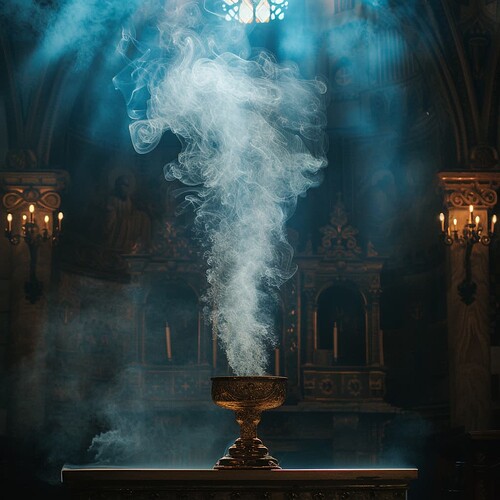 February 19: Psalm 87, 88 - A Tale of Divine Love and Human Despair
February 19: Psalm 87, 88 - A Tale of Divine Love and Human Despair
The Dwelling Place of God and the Depths of Desolation
 Introduction
Introduction
The Psalms are filled with pronounced polarity, and today’s reading of Psalm 87 and 88 provide a stark contrast between the nearness and the apparent absence of God’s abundant love and faithfulness.
 Psalm 87: A Symphony Dedicated to Zion
Psalm 87: A Symphony Dedicated to Zion
Psalm 87 extols the beauty and the divine favor of the city of Zion. Written by the sons of Korah, it rejoices in the knowledge of being part of the city loved by God.
Key Verse: Psalm 87:3 “Glorious things are said of you, city of God.”
 Psalm 88: A Desolate Plea for Help
Psalm 88: A Desolate Plea for Help
On the other hand, Psalm 88, written by Heman the Ezrahite, presents a raw expression of suffering and despair. The recurring theme is a desperate cry to God to lift him from the depths of his plight.
Key Verse: Psalm 88:13 “But I cry to you for help, Lord; in the morning my prayer comes before you.”
 Key Themes and Reflections:
Key Themes and Reflections:
- The Beauty of God’s City: Psalm 87 reveals the divine favor of Zion and how glorious it is to be counted as a citizen of the city of God. This theme parallels the New Testament concept of Christian citizenship in the kingdom of God.
- Honesty in Suffering: Psalm 88 invites us to be honest with God on our worst days and pour out our despair to Him, trusting in His mercy and grace.
 Today’s Application
Today’s Application
Today’s reading challenges us to recognize ourselves as citizens of God’s kingdom and to maintain our faith even in times of despair. Remember, your prayers are heard, and your feelings — whether joy or grief, hope or despair — are valid in the eyes of the Lord.
 Hidden Gem
Hidden Gem
Interestingly, of the 150 psalms, Psalm 88 is the only one that ends on a note of despair, with no resolution or assurance of God’s deliverance—capturing the depth of human desolation.
 Reflective Q&A:
Reflective Q&A:
![]() How can we relate to God’s city, as described in Psalm 87?
How can we relate to God’s city, as described in Psalm 87?
A: As Christians, we belong to a spiritual Zion, the heavenly Jerusalem. The joy in Psalm 87 is a reminder of our ultimate home, built by God’s own hands.
![]() Why is it important to express our desolation as seen in Psalm 88?
Why is it important to express our desolation as seen in Psalm 88?
A: Our faith allows for honest, raw emotions. Psalm 88 is a testament that it’s okay to admit when we are in the depths of despair. It’s a way to remind ourselves that God hears our cries, even in our darkest hours, and waits to comfort us.
 Join the Discussion
Join the Discussion
What was your takeaway from today’s reading? How does the contrast of joy in God’s city and the depth of despair in human life resonate with you? Share your thoughts with our community.
 See You Tomorrow in <Psalm 89>!
See You Tomorrow in <Psalm 89>!
In tomorrow’s reading, we will explore yet another facet of the multi-dimensional book of Psalms. May the Lord guide us all on this spiritual journey.
